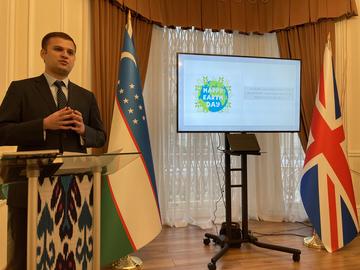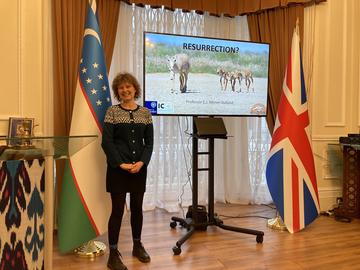Home
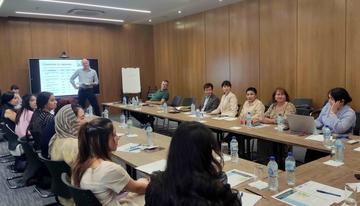
The Resurrection Island: enterprise, conservation and development around the Aral Sea project organized a training on “Tourism and biodiversity in Karakalpakstan: seeking opportunities”, in which representatives of the Ministry of Ecology, environmental protection and climate change of the Republic of Uzbekistan, Research Institute of Tourism Development took part, as well as local travel agencies. The training was devoted to the analysis of the tourism, in particular, eco-tourism potential of Karakalpakstan, as well as issues of mitigating the impact of tourism and recreation on biodiversity and the local landscape.
During the event, participants exchanged information and ideas on the development of pilot tourist routes in the Aral Sea region, as well as the implementation of the Tourism Development Strategy in Karakalpakstan.
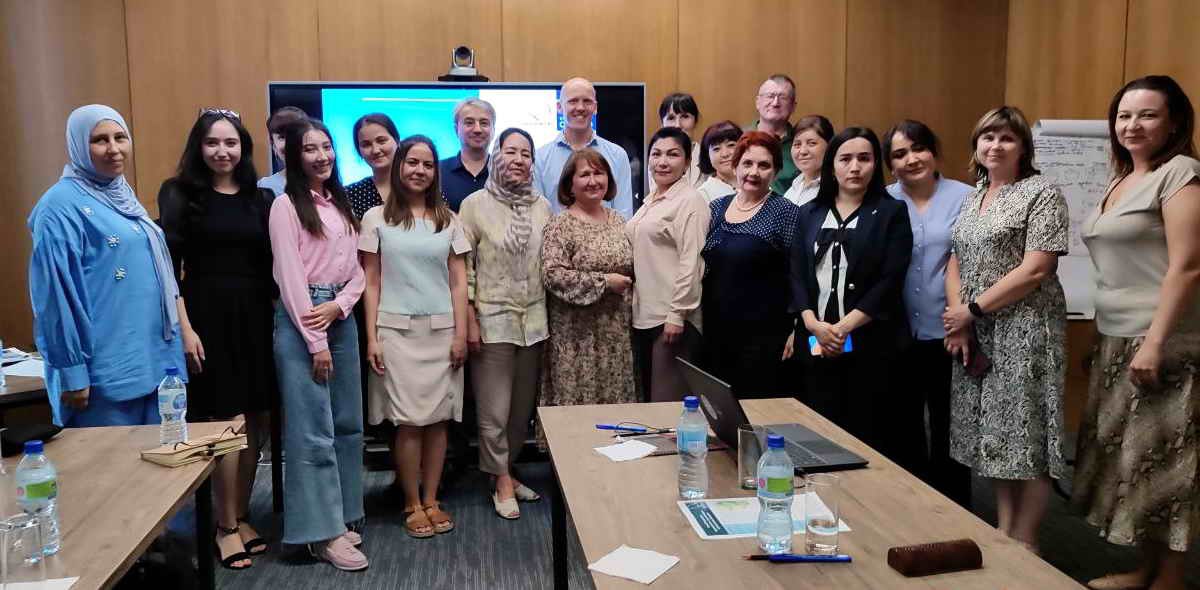
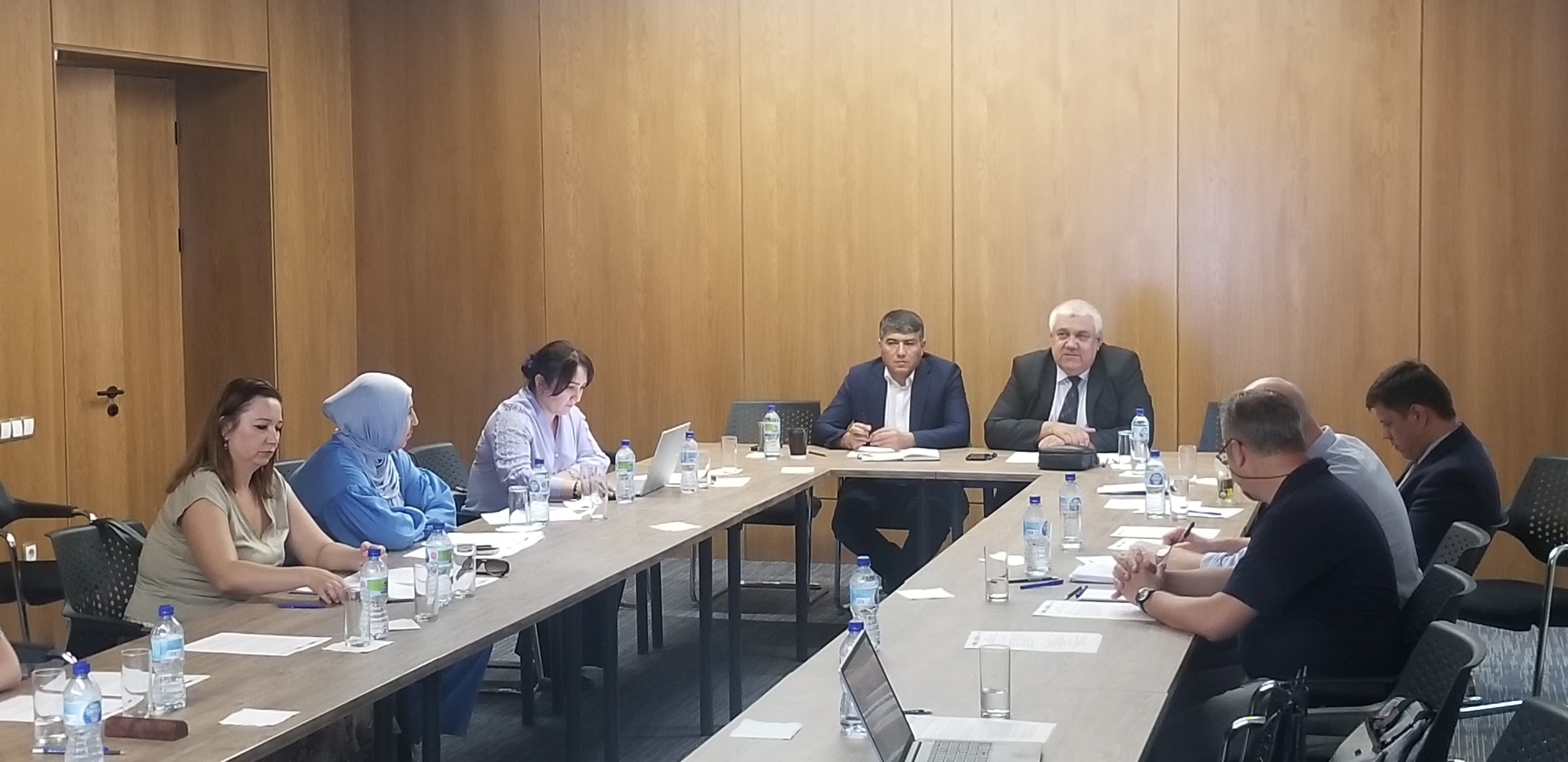
On 11 September 2023, an annual round table was held to discuss the implementation of the goals and objectives of the project "Resurrection Island: enterprise, conservation, and development around the Aral Sea." This initiative is implemented by the University of Oxford in collaboration with the Ministry of Ecology, environment protection, and climate change of the Republic of Uzbekistan. During the event, partners were updated on the project’s progress over the past year, the development status of the Aralkum NNP, the results of scientific studies assessing biodiversity on Resurrection Island, prospects for developing eco-tourism in the Aral Sea region, an action plan for biodiversity conservation, and the roadmap for the upcoming year.
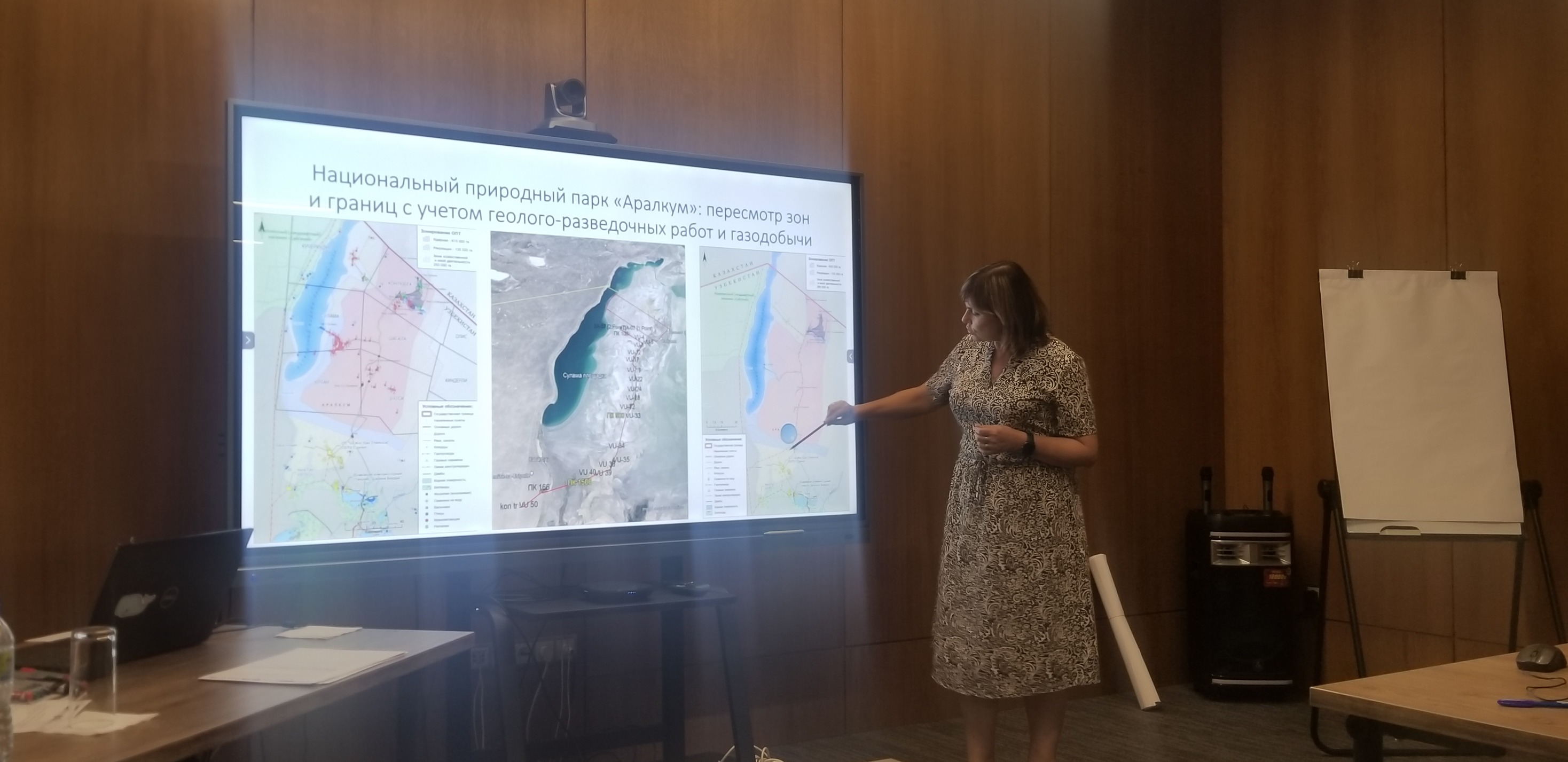
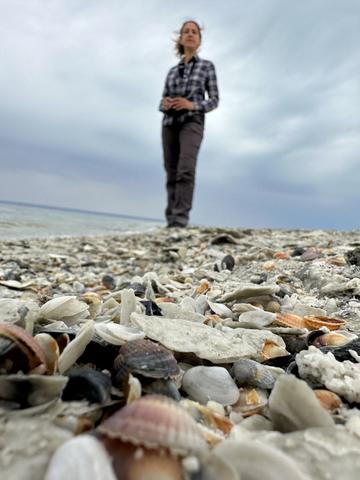
Resurrection Island Project, among other goals, pursues ecotourism development in the Aral Sea region. The project team developed a touristic trail that stretches from the south of Karakalpakstan to the mysterious Vozrozhdeniye Island and the western Aral Sea.
Nida Al-Fulaij, Conservation Research Manager at People’s Trust for Endangered Species, had the incredible opportunity to be the first tourist to pilot the touristic trail. In our exclusive interview, Nida shares her experience as she ventured through the remotest parts of Uzbekistan.
What were your expectations of your first trip to the Aral Sea region?
I had read about the Aral Sea region in multiple articles and heard about the environmental devastation that occurred due to diverting waters for irrigation. I have been fascinated by the region for many years and was always keen to visit but was even more keen when we began supporting the saiga project in the region. I was expecting it to be incredibly remote and populated by scattered small villages. Although I knew from maps how large the sea had been, I didn’t appreciate its size until I visited Karakalpakstan.
What do you think is the most unique aspect of the Aral Sea region that you have seen during your trip?
The canyons on Ustyurt Plateau were breathtaking, I have never seen such spectacular scenery. However, I think the most unique aspect of the Aral Sea region was the sense of rapid change, visible in many areas. This was evident in the abandoned buildings and laboratories at Aralsk 7, alongside the derelict harbour. It was also evident in the crumbling fish canning factory and rusting fishing boats. And in the strange substrate encrusting the ground, like a layer of crunchy white salt on soft grey mud. Knowing that just a few decades ago the region was so different, and has changed fundamentally in people’s lifetime is difficult to comprehend. It makes the Aral Sea region completely unique and fascinating.
What advice would you give to someone planning a trip to the Aral Sea region for the first time? Are there any particular challenges that you think first-time visitors to the area should be aware of?
There are many incredible places to visit, people to meet, food to experience and history and culture to learn about. So be open to new adventures every day. It is a remote region, so there is a lot of travelling both to get to the Aral Sea and also moving between places, so be patient and take some small comforts for long hours in the car.
What has been your favourite moment or experience during your trip?
Meeting the people who live in and know the region well has been very inspiring. Despite the rapid changes that have occurred over the past few decades there is clearly a strong tie to area and a deep sense of belonging to the region by the community. Engaging with the school children and their teachers, meeting local people and hearing about their lives and experiences and future aspirations was both heartening and inspiring. It was particularly good to see how intelligent, passionate and engaged the children were about their region and their dreams for their future.
How do you think visitors can help contribute to the sustainability of the region and its natural resources?
Visitors can contribute by learning more about the region and how it has changed recently before visiting. Understanding issues such as the shortage of water and difficulties that have arisen from a lack of employment due to the collapse of the fisheries industry are important. Knowing this will enable visitors to be respectful when coming to the region, being careful with water and being mindful about waste. Tourists who visit locations that are hours from towns should be aware that everything they need to eat, drink, consume wash with etc must be transported a long way. And, therefore, there must be limits to what they can expect to be available. It is likely to mean simpler and fewer options, but they can still be special and delicious.
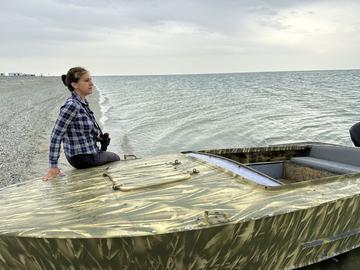
Are there any environmental or social issues related to tourism in the Aral Sea region that you have become aware of during your visit?
Managing water and waste were the main environmental issues I was aware of in the region. I was concerned when I realised that the water pipes were only running for one hour each evening and morning in the different districts of Muynak so that households have to plan carefully, filling up tanks and containers to last 12 hours. Although I thought I was careful with water use, it made me much more conscious not to use water unnecessarily.
Waste was another issue in the region. I thought we would be so remote that there wouldn’t be any waste but even as we drove across what was the seabed, there were plastic bottles and other waste, which was sad to see. It is such a ubiquitous global issue. It is difficult to go anywhere now without seeing the impacts of plastic production.
Are there any traditional art and craft products that are produced in the Aral Sea region that you have become aware of during your visit, and which would you consider taking home?
We saw some woven and embroidered products in Nukus which were lovely traditional souvenirs from the region. These type of craft products, either in their original form (caps, dresses etc) or modified into e.g., table mats, small rugs, bags would be really popular.

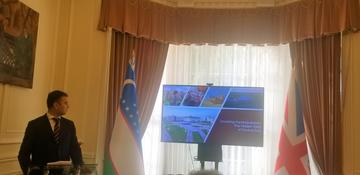
Bradt Guides, the world's leading independent travel publisher, has recently published a travel guidebook on Karakalpakstan. Co-authored by Sophie Ibbotson, a member of the Advisory Board for the Resurrection Island project and the tourism ambassador of Uzbekistan to the UK, this guidebook offers extensive information about the abundant tourist attractions of Karakalpakstan. It delves into the region's history, culture, arts and crafts, ecology, and much more. The guide also sheds light on the RI project, detailing the activities undertaken to support the local population and the environment of the Aral Sea region. The unveiling of this travel guide took place at the Embassy of the Republic of Uzbekistan in the UK.
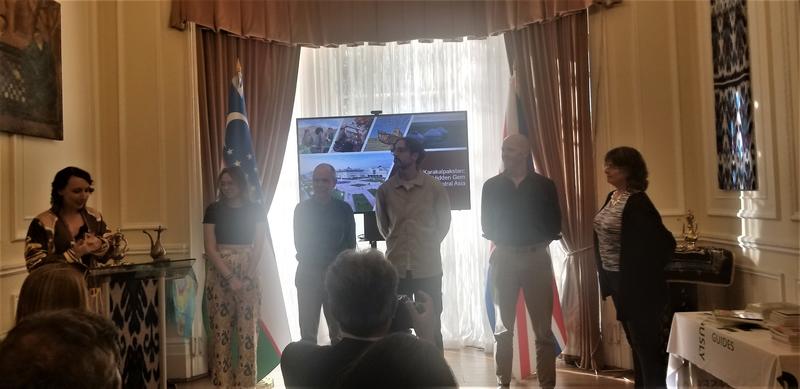
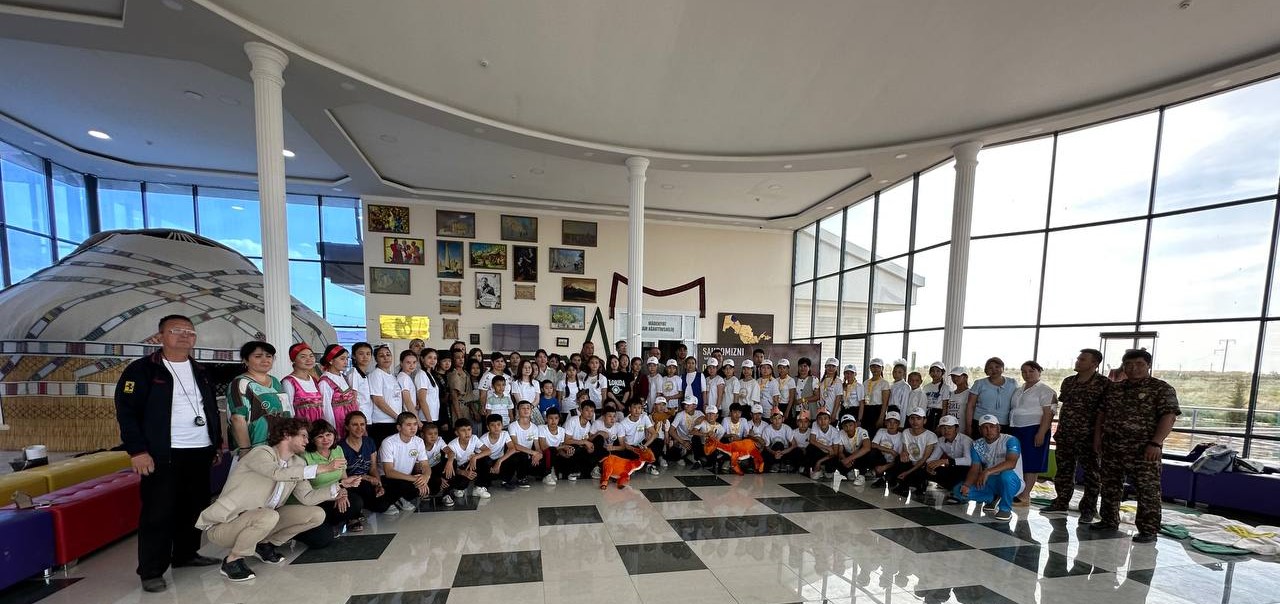
On 12 May 2023, an event was organized in the Ak Keme children's camp in the Muynak district of Karakalpakstan as part of the "Resurrection Island: enterprise, conservation, and development around the Aral Sea" project. The event was dedicated to the celebration of Saiga Day, with the main purpose of raising public awareness of the need to conserve and protect this endangered species.
More than 70 people attended the event, including students and teachers from four secondary schools in Kungirat and Muynak districts, representatives of the Khokimiyat of Muynak district, as well as employees of the Ministry of Natural Resources.
Before the main event, an online competition was organized for the best "Fascinating Lesson - Saiga SOS," aimed at raising awareness for Saiga Day.
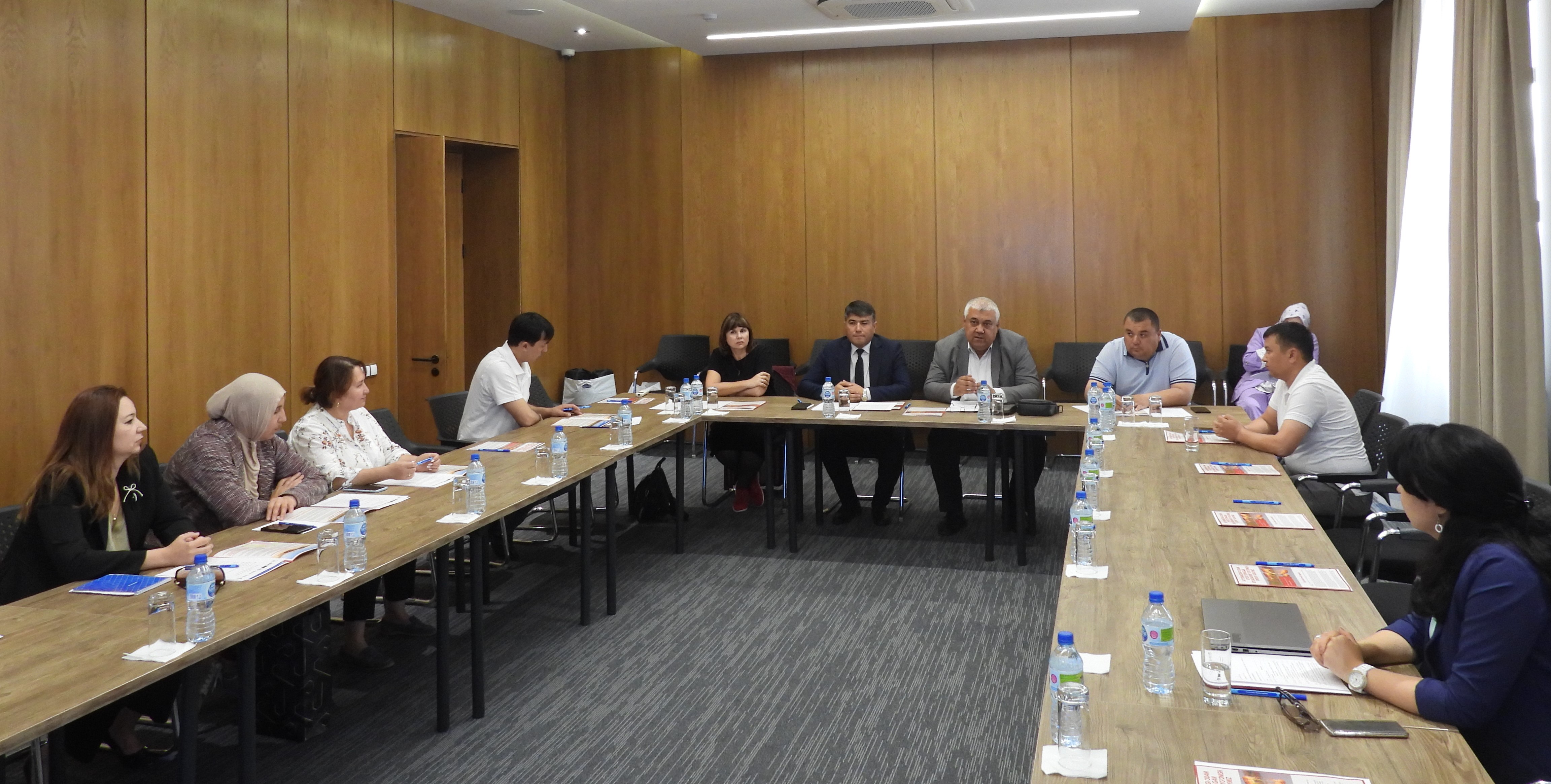
On 5 May 2023, a roundtable was held in Tashkent to discuss the development potential of the Aralkum National Park (NP) within the framework of Resurrection Island: enterprise, conservation, and development around the Aral Sea project.
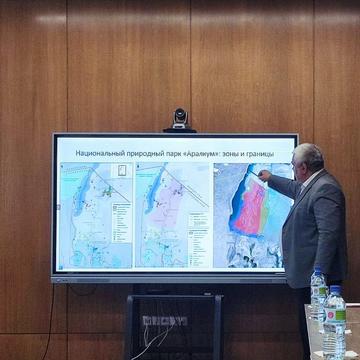
During the event, the current state of the organization of the Aralkum NP was discussed, including compliance with existing environmental legislation, botanical and zoological criteria for assessing the national park's territory, as well as the zones and boundaries of the future national park. Additionally, the existing potential for the development of ecotourism in the territory of the Aralkum NP and its surroundings was presented.
The project aims to take specific measures to give Vozrozhdenie (Resurrection) Island and the adjacent territory, located on the drained bottom of the Aral Sea, the status of a protected area. This will help preserve the unique biodiversity of the Island, particularly the endangered Saiga antelope. Alongside this effort, a number of activities will be implemented to provide the local population with new sources of stable income, mainly through the development of ecological tourism in the region.
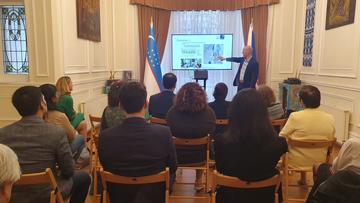
On 20 April 2023, Dr Joe Bull, the principal investigator of the Resurrection Island project, and Professor EJ Milner-Gulland, an RI project Advisory Board member, participated in the Earth Day event organized by the British-Uzbek Society in cooperation with the Embassy of the Republic of Uzbekistan in the United Kingdom.
During the event, Dr Joe Bull and Professor Milner-Gulland presented the work in Karakalpakstan, particularly the activities around the Aral Sea region, including the Darwin Initiative’s Resurrection Island: enterprise, conservation and development around the Aral Sea (RI) project. The talks were followed by a Q&A session that was well attended by a range of people, including academics, industry, public sector, NGO, and business students.
The event is the latest in a series of collaborative activities between the RI project team and the Embassy of the Republic of Uzbekistan in the UK, who are good partners of the RI project.
